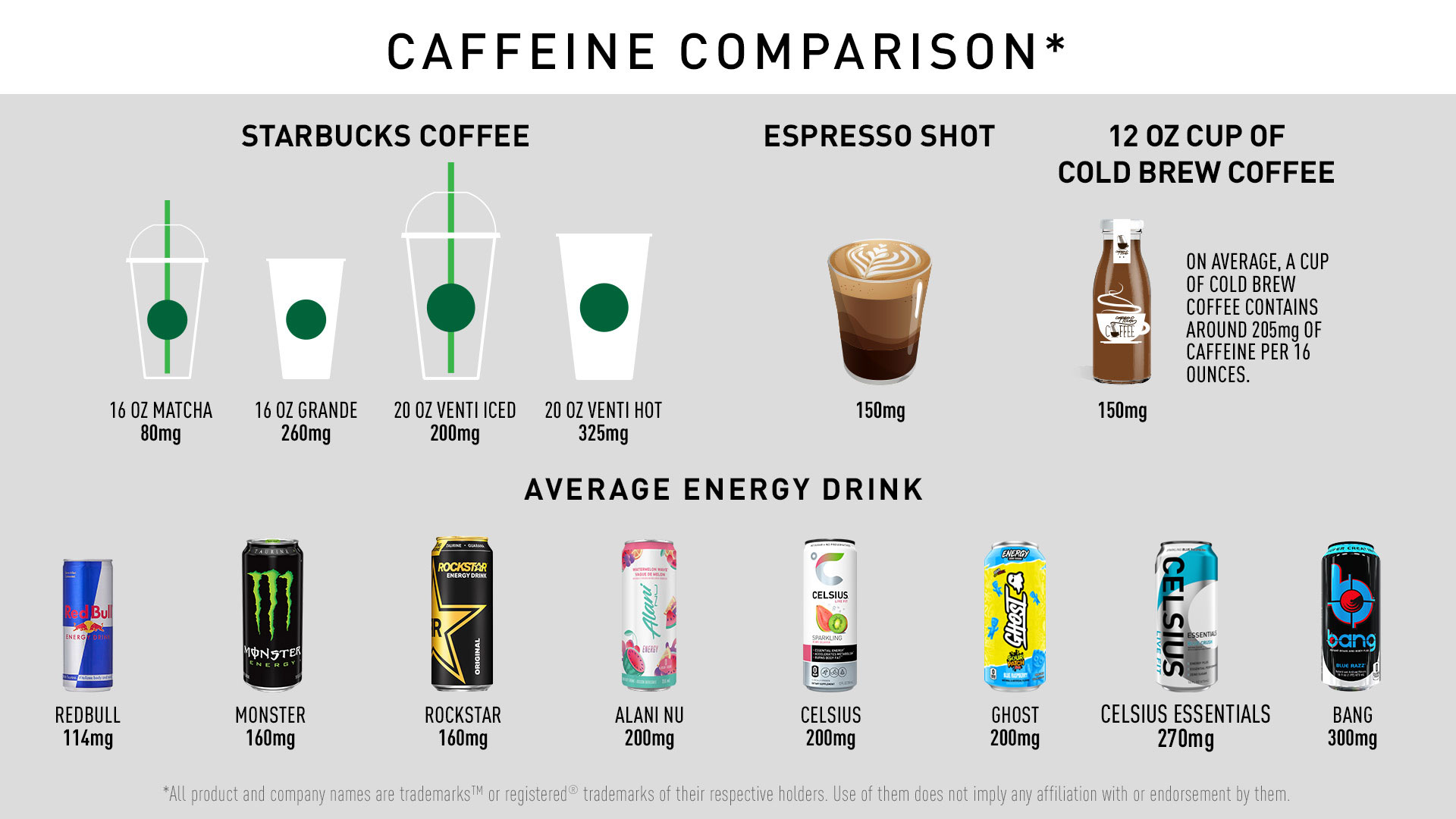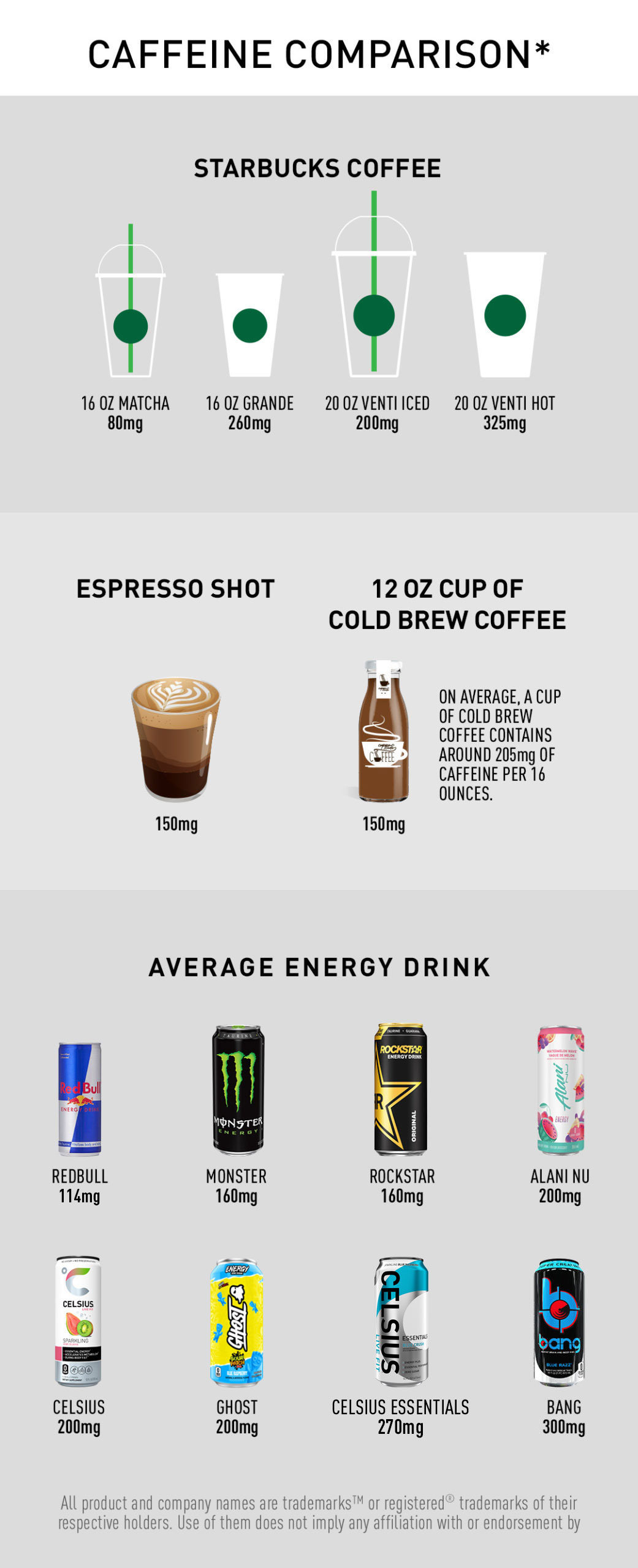Essential Facts
About CELSIUS® Energy Drinks
You may have questions about our product’s ingredients, how safe they are to consume, and how CELSIUS products might affect you as an athlete. That’s why we’ve prepared this FAQ to help educate you on some of the most common questions we’ve seen.
Read below for the most frequently asked questions about our products, and get the answers straight from the source. Also, feel free to contact us if you have a question that you don’t see here.
Q: How Much Caffeine is in CELSIUS Products?
A: Caffeine Content by Celsius Product Line:
- CELSIUS & CELSIUS Vibe beverages contain 200 mg of caffeine per can.
- CELSIUS Essentials beverages contain 270 mg of caffeine per can.
- CELSIUS On-The-Go powders contain 200 mg of caffeine per packet.
We recommend consulting with your health care provider if you are concerned that CELSIUS products may impact your health.


Q: Is it Safe to Drink CELSIUS Energy Drinks Every Day?
A: Yes, it is safe to consume CELSIUS products every day.
When combined with other lifestyle factors, drinking CELSIUS beverages each day is safe for most consumers. Those who have adverse reactions to CELSIUS Energy products likely have pre-existing health conditions, are drinking too many cans of CELSIUS beverages per day, or are consuming too much caffeine in general.
We recommend consulting with your health care provider if you are concerned that CELSIUS products may impact your health.
Q: How Many Cans of CELSIUS Energy Drinks is Too Many?
A:
We recommend no more than two 12 oz cans, or two servings, per day, and that you follow the daily serving recommendations for all other CELSIUS products.
The FDA advises that drinking up to 400 mg of caffeine – the equivalent to two 12oz cans of CELSIUS Energy Drink – is safe for most individuals. However, everyone metabolizes caffeine differently, which means that caffeine sensitivity varies from person to person (FDA, 2018).
If you are new to energy drinks, we recommend drinking no more than one CELSIUS product in a 24-hour period. If you have a high tolerance to caffeine, we recommend no more than two CELSIUS beverages, or one Celsius Essentials beverage every 24 hours.
Q: Can Drinking CELSIUS Products Cause Kidney & Liver Damage?
A:
CELSIUS energy drinks are not known to cause liver or kidney damage when consumed as recommended. The amount of green tea extract and EGCG in a CELSIUS beverage is just as safe as a home-brewed cup of green tea.
We recommend consulting with your health care provider if you are concerned that CELSIUS products may impact your health.
Q: Some social media users have made negative claims around cyanocobalamin and celsius. Is there any validity to these claims?
A:
No. These claims are untrue and the source of the claims has removed all videos where the claims are made. Specifically, Gary Brecka, the man who made the claims, stated: “This was a mis-quote and is not accurate. These videos have subsequently been taken down voluntarily as a result of this statement not being accurate.”
-
Here’s the Truth:
- Celsius products contain a common version of vitamin B12 called cyanocobalamin. See National Library of Medicine on Cyanocobalamin, ncbi.nlm.nih.gov/books/NBK555964.
- The FDA officially approved cyanocobalamin as completely safe. See 21 C.F.R. 184.1945 (Vitamin B12), accessdata.fda.gov/scripts/cdrh/cfdocs/cfcfr/CFRSearch.cfm?fr=184.1945.
- The National Institutes of Health (NIH) agrees with the FDA that cyanocobalamin is safe. See National Library of Medicine on Cyanocobalamin, ncbi.nlm.nih.gov/books/NBK555964.
- The NIH says that there is no unsafe amount of vitamin B12. See NIH Vitamin B12 Fact Sheet for Health Professionals, ods.od.nih.gov/factsheets/VitaminB12-HealthProfessional.
- Cyanocobalamin is the most common form of vitamin B12 due to its stability and vitamin B12 is found naturally in many natural foods, including fish, red meat, poultry, eggs, and dairy products. See NIH Vitamin B12 Fact Sheet for Health Professionals, ods.od.nih.gov/factsheets/VitaminB12-HealthProfessional.
- Cyanocobalamin is not made from hydrogen cyanide or anything else unsavory. See McGill Office for Science and Society, mcgill.ca/oss/article/critical-thinking-health-and-nutrition-pseudoscience/oh-my-there-cyanide-b12-supplements-really.
- It is made using the same bacteria that makes vitamin B12 in animals. See Bioprocess Strategies for Vitamin B12 Production by Microbial Fermentation and Its Market Applications, ncbi.nlm.nih.gov/pmc/articles/PMC9405231.
- According to Snopes, the oldest and largest fact-checking site, these claims have been proven false: https://www.snopes.com/fact-check/monster-celsius-energy-cyanide/.
Essential Facts
CELSIUS® and the NCAA Rules
Since its founding in 2004, CELSIUS fitness drinks have been enjoyed by the most elite professional and collegiate athletes in sports all over the world. With its clinically proven formula, CELSIUS has solidified its place as a pioneer in the rapidly growing performance energy sector.
Some collegiate athletes may have questions about whether one ingredient in CELSIUS products – caffeine derived from guarana extract – raises any issues under NCAA rules.
What is the Guarana Ingredient in CELSIUS Products?
- The caffeine in CELSIUS products is sourced in part from guarana extract, a safe, plant-derived form of caffeine.
- According to the Drug Free Sport AXIS, which handles the NCAA’s authoritative review of label ingredients, guarana “is not specially banned by the NCAA” but is merely an example of a source of caffeine.
- The NCAA does not differentiate between sources of caffeine, such as coffee beans, tea leaves, soft drinks, a bar of chocolate – or guarana.
Caffeine appears on the NCAA’s Banned Substance List.1 Does that mean the NCAA Drug Testing Program bans athletes from consuming all caffeinated products, including those like CELSIUS Energy Drinks?
- No. It is important to understand that the NCAA Drug Testing Program does not consider an athlete to test positive for caffeine if consumed responsibility.2
- To give perspective, for athletes weighing just 110 pounds, the International Society of Sports Nutrition estimates they’d have to drink over 500 mg of caffeine within several hours just prior to competition to test positive — and even more caffeine for athletes weighing more.4
- According to a publication by the NCAA’s Sport Science Institute, 500 mg of caffeine is equivalent to “six or eight cups of brewed coffee, two to three hours before competition.”3
- CELSIUS energy drinks contain 200 mg of caffeine per can and it is recommended that consumers not drink more than two per day (or for CELSIUS Essentials energy drink, one per day). These recommended servings will test under the NCAA’s caffeine limits for most athletes.*
* Individual test results depend on metabolism and other caffeine consumption on the day of competition. All athletes must ensure that they are educated on the health effects of any energy drink and confirm with their athletic departments and universities or colleges that there is no risk to eligibility by consuming them.5
Has any NCAA athlete ever been declared ineligible to compete due to consuming CELSIUS Products?
- No. Consuming CELSIUS Products has never been reported as the cause of any NCAA athlete’s ineligibility to compete at the collegiate level.
More Information
The Banned Substances Control Group (BSCG)—a leading expert on dietary supplements and drugs in sport—analyzed the NCAA’s rules around caffeine and guarana at CELSIUS’s request.
BSCG’s report can be found here.*
* This report is provided for informational purposes only, is general in nature, and is not intended to address each individual’s unique situation. BSCG’s analysis should not be relied upon and is not a substitute for complying with NCAA rules or a doctor’s advice.
- NCAA Banned Substances List (ncaa.org)
- In a 2009 press release, the NCAA said its “limit on the amount of caffeine . . . was set to allow ordinary consumption of caffeine-containing beverages, such as cola, tea or coffee.” See also 2022-23 NCAA Sport Science Institute Drug Testing Program (ncaaorg.s3.amazonaws.com) (stating a positive caffeine test means 15 micrograms per milliliter in a urine test).
- NCAA SSI’s Caffeine and Athletic Performance (sportsrd.org)
- ISSN Position Stand: Caffeine and Exercise Performance 2021 (biomedcentral.com). The ISSN paper discusses the World Anti-Doping Agency (WADA) testing threshold, which is stricter than the NCAA testing threshold.
- The NCAA has identified Drug Free Sport AXIS™ (AXIS) as the service designated to answer student-athlete questions about ingredients that appear on product labels. Contact AXIS at 816-474-7321 or dfsaxis.com